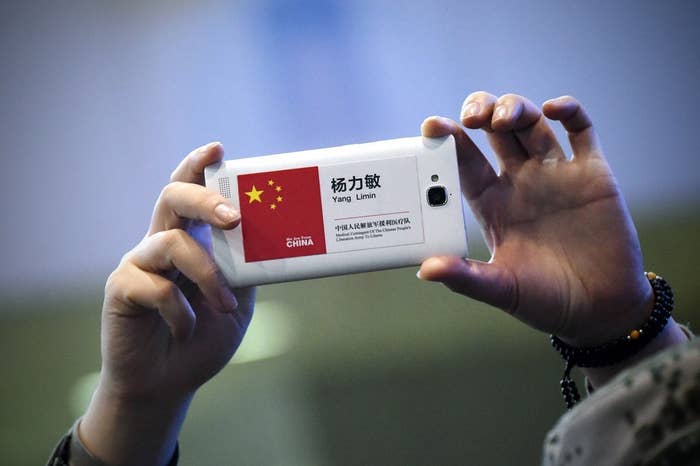
SAN FRANCISCO — Chinese professor Hao Zhang was arrested Saturday after landing in Los Angeles' international terminal; he's one of six Chinese nationals named by the Justice department in a major indictment made public Tuesday that charges that the men were part of a long-running conspiracy to steal U.S. trade secrets for the Chinese government.
"As today's case demonstrates, sensitive technology developed by U.S. companies in Silicon Valley and throughout California continues to be vulnerable to coordinated and complex efforts sponsored by foreign governments to steal that technology," said U.S. Attorney Melinda Haag. "Combating economic espionage and trade secret theft remains one of the top priorities of this Office."
Zhang, 36, had flown into Los Angeles on May 16 to take part in a conference. He was arrested upon entering the United States, though it appears that the other men named in the indictment are still at large.
Zhang and two other defendants had graduated from the University of Southern California (USC) with engineering degrees in 2005, and then secured jobs at high-tech firms Avago and Skyworks Solutions. The indictment against them states that, along with three other men in China, they allegedly used their jobs to attempt to steal U.S. technology — specifically a technology known as thin-film bulk acoustic resonator (FBAR) that filters wireless signals in cell phones — and set up a duplicate company in China that would re-create it.
The indictment of the men is part of a broader effort by the U.S. government to step up efforts to deter Chinese theft of trade secrets and through insiders who use their position within companies to steal information, and by hackers, whose widespread infiltration of U.S. systems was recently highlighted in reports by cybersecurity companies such as FireEye and Kaspersky.
The men named in the indictment have a long history of working and studying within the United States, often with U.S. government funding. At USC, Zhang and another defendant, Wei Pang, 35, previously conducted research into FBAR technology with U.S. Department of Defense funding. Zhang and Pang then left to work at Skyworks Solutions in Massachusetts and Avago Technologies in Colorado respectively. Both companies did not respond to a request for comment from BuzzFeed News.
In the indictment, the Department of Justice alleged that Zhang and Pang quickly involved another former USC student, Huisui Zhang, and three other co-conspirators in China, in a plan to steal the FBAR technology from the U.S. companies and establish a business through the Chinese state-run Tianjin University.
The indictment claims that in 2006, Huisui Zhang emailed Pang and Hao Zhang his notes on the creation of a new factory with one section titled "Moving Avago to China."
The indictment also claims that Pang told his fellow USC classmates that they could undercut competitors because they would save money by stealing the U.S. FBAR technology, and that the filter market for cell phones in 2005 "is estimated to be more than $1 billion."
Pang and Zhang quit their jobs at the U.S. in 2009 and moved to China where they both received positions as professors at Tianjin University, the same university with which they had discussed the establishment of a factory. According to the indictment, in 2009 Pang also set up a shell company in the Cayman Islands. Over the next two years, Zhang and Pang filed for patent applications in the U.S. based on the FBAR technology and launched a company named as ROFS Microsystems.
Zhang is currently being transported in custody to San Jose for further proceedings. His next scheduled appearance is at a date to be determined, before the U.S. District Judge Edward J. Davila of the Northern District of California.
According to the Department of Justice, the six men named in the indictment are:
Hao Zhang, 36, a citizen of the PRC, is a former Skyworks employee and a full professor at Tianjin University. Zhang is charged with conspiracy to commit economic espionage, conspiracy to commit theft of trade secrets, economic espionage and theft of trade secrets. Zhang was arrested upon entry into the United States on May 16, 2015.
Wei Pang, 35, a citizen of the PRC, is a former Avago employee and a full professor at Tianjin University. Pang is charged with conspiracy to commit economic espionage, conspiracy to commit theft of trade secrets, economic espionage and theft of trade secrets.
Jinping Chen, 41, a citizen of the PRC, is a professor at Tianjin University and a member of the board of directors for ROFS Microsystems. Chen is charged with conspiracy to commit economic espionage and conspiracy to commit theft of trade secrets.
Huisui Zhang (Huisui), 34, a citizen of the PRC, studied with Pang and Zhang at a U.S. university in Southern California and received a Master's Degree in Electrical Engineering in 2006. Huisui is charged with conspiracy to commit economic espionage and conspiracy to commit theft of trade secrets.
Chong Zhou, 26, a citizen of the PRC, is a Tianjin University graduate student and a design engineer at ROFS Microsystem. Zhou studied under Pang and Zhang, and is charged with conspiracy to commit economic espionage, conspiracy to commit theft of trade secrets, economic espionage and theft of trade secrets.
Zhao Gang, 39, a citizen of the PRC, is the General Manager of ROFS Microsystems. Gang is charged with conspiracy to commit economic espionage and conspiracy to commit theft of trade secrets.
